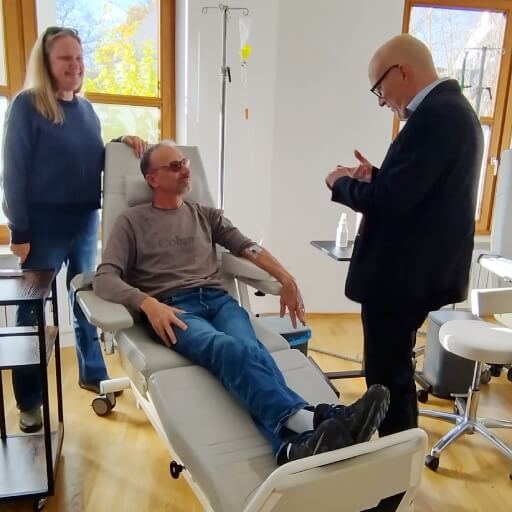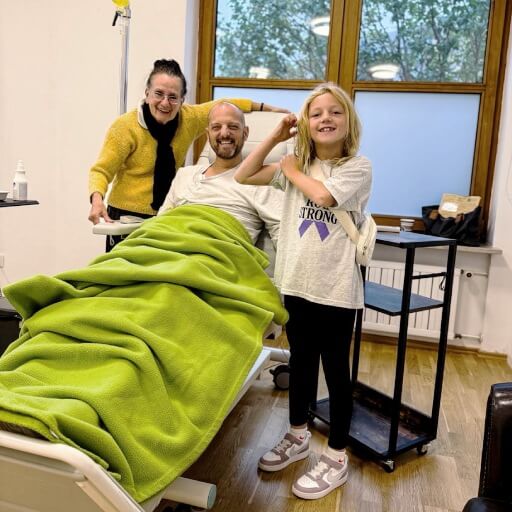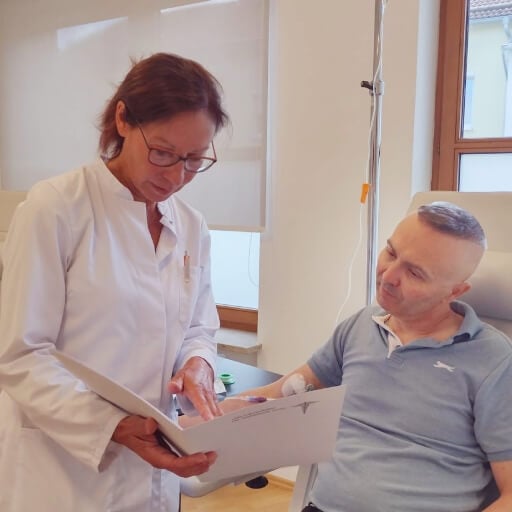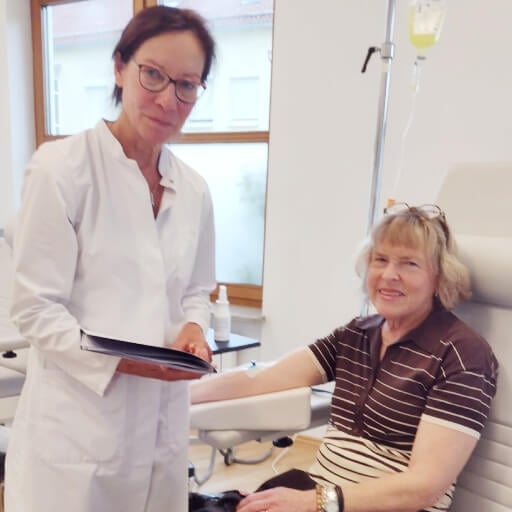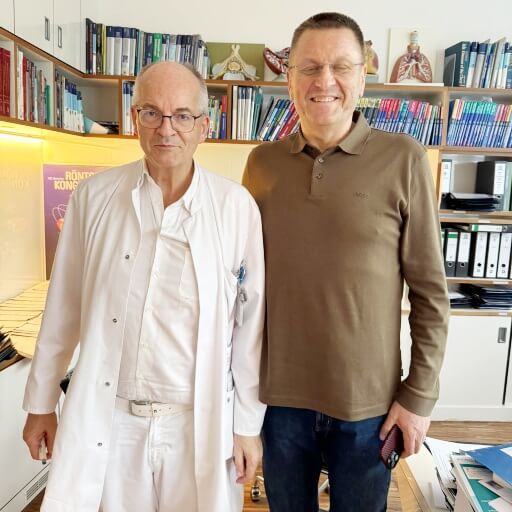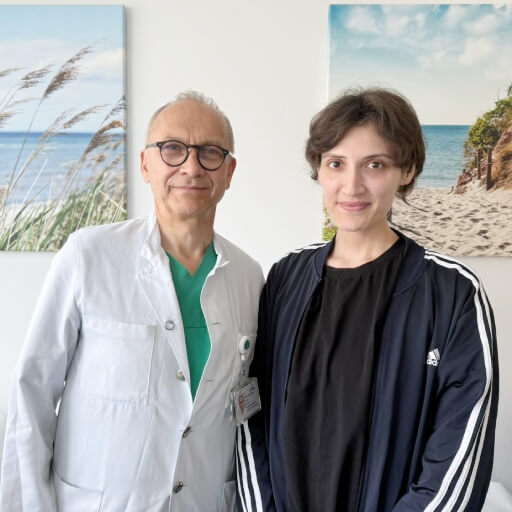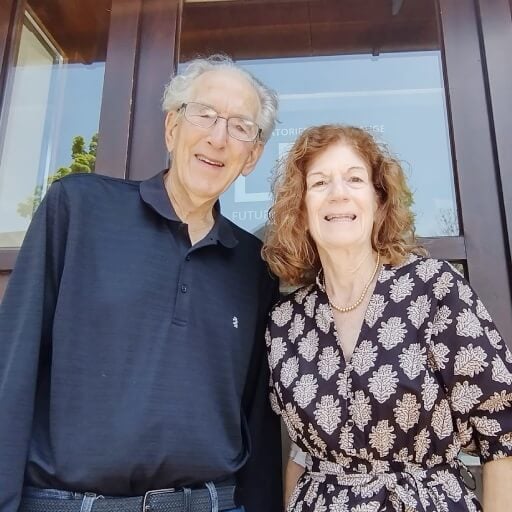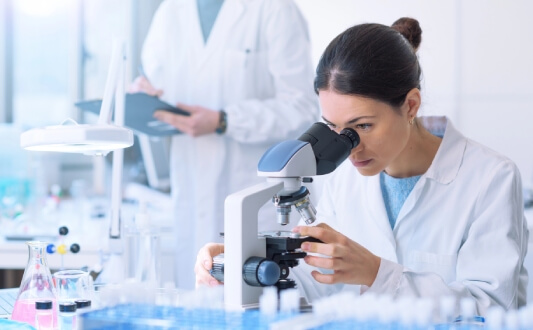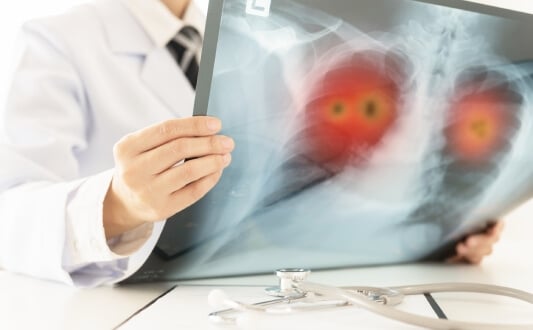Lung cancer is a fatal disease that remains extremely difficult to treat despite the current progress of modern medicine. It is one of the most prevalent types of cancer worldwide and accounts for a significant share of cancer mortality. While smoking is the primary cause, many other risk factors can increase the risk of developing lung cancer, including family history, occupational exposures, environmental pollutants, and genetic predispositions. These elements contribute to the overall lung cancer risk, even among individuals who have never smoked.
According to recent European data, about 1,261,990 cancer deaths were projected for 2023 across EU countries, with lung cancer remaining one of the leading causes of mortality [1] . While male death rates have decreased thanks to smoking reduction and earlier efforts to diagnose lung cancer, female mortality, particularly in those over 65, continues to rise
This article explains where lung cancer originates, how tobacco use can trigger lung cancer cells, and why not all smokers ultimately face a lung cancer diagnosis. We will also discuss how changes in the immune system and weakened immune cells may allow cancer spread, why some causes should be eliminated first to minimize the risk of lung cancer, and how prevention and early lung cancer screening can save lives.
Smoking is the cause of lung cancer
Most often, lung cancer develops because of smoking. A smoker has a 20 times higher risk of developing lung cancer than a non-smoker. The cancer develops due to the permanent effect on the mucous membrane of bronchial carcinogens. In total, tobacco smoke contains about 60 carcinogens. The most dangerous of these are radon, benzpyrene, and nitrosamine. In addition, cigarettes suppress the immune system, making it harder for immune cells to detect and fight abnormal cancer cells, and thus the body becomes resistant, and it is more difficult to stop oncological processes.
The relationship between smoking and lung cancer is confirmed by statistics [2]. Currently, this disease is the world's leading cause of death among men from all lung cancer cases and other cancer pathologies. A correct cancer diagnosis at early stages significantly improves outcomes, but smoking often delays detection because early lung cancer symptoms are non-specific.
The speed of the development of lung cancer is not affected by how strong the cigarettes are that a person is smoking. If he or she prefers light cigarettes with a low content of nicotine and tar, the lung cancer risk is not reduced. This is because lung cancer is caused not by nicotine, but by benzopyrene and other carcinogens.
How quickly lung cancer spreads is not affected by:
- Whether you smoke cigarettes, cigars, hookah, or pipe
- Whether you smoke with a filter or not
- What brands do you prefer
It is established that the longer a person smokes, the higher the probability of this oncological pathology. Although it is impossible to say for sure exactly after how many years of smoking, small-cell lung cancer or non-small-cell lung cancer types may appear, there is a clear correlation. There is no such rule that you can smoke for 29 years without any health risks, and at 30 suddenly develop a tumor. All processes in the lungs occur gradually.
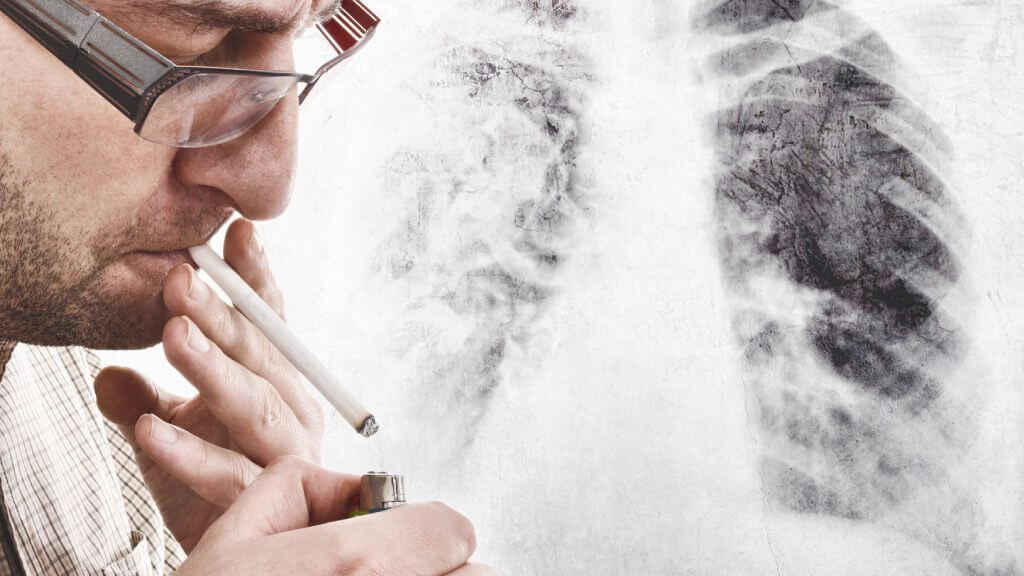
Why Smoking Causes Lung Cancer
Under the influence of tobacco smoke and carcinogens, atrophy of the epithelium of the bronchi develops, and the number of goblet cells decreases. There is a replacement of the glandular components of the mucous membrane with fibrous tissue. The cylindrical epithelium turns into a multilayered epithelium. Then foci of dysplasia develop – at first mild, then moderate, then severe. In the end, in one of the pronounced locations of metaplasia, cancer cells can form on the spot (preinvasive). After a few years, it turns into invasive cancer and begins to increase rapidly in size, eventually leading to metastatic lung cancer and possible lung metastases from other tumors.
Quitting smoking leads to a gradual decrease in the lung cancer risk. The bronchial mucosa is restored. In 10–15 years after one stops smoking, the risk of lung cancer becomes the same as in a person who has never smoked in their life. Nevertheless, if a person who has quit smoking still develops lung cancer, the disease is often more severe than in a person who has never smoked. Such patients have reduced chances of survival and usually require a more aggressive treatment plan, including surgery, radiation therapy, or targeted drug therapy to treat cancer effectively.
The number of cigarettes smoked per day is also important. There is a high probability of developing lung cancer after smoking 2 packs of cigarettes a day.
The incidence of a malignant tumor is 217 cases per 100,000 of the population. If a person smokes one pack a day, the probability of developing cancer is 25–30% less than in two. The incidence of lung cancer cases in such categories of people is 144 per 100,000 of the population. People who smoke an average of 10 cigarettes a day have a lower risk of lung cancer. The incidence of lung cancer among such people is 51 cases per 100,000 of the population. That is, the risk is 4 times less than for those who smoke 2 packs a day, and 3 times less compared to smoking 1 pack every day.
At Which Age Can Lung Cancer Develop?
Often, smokers are interested in questions such as, "At what age can one get lung cancer?" They believe that if they stop smoking in time, they can protect themselves from all risk factors. This approach is not illogical. The older the person, the higher the risk of lung cancer. Lung cancer does not usually occur at 20 years of age. Lung cancer in the 30s is very rare. However, after 40, the probability of this disease increases. The age group of people after 60 is more prone to pathology. In men that are 60–69 years of age, the risk of developing lung cancer is 60 times higher than in those aged 30–39 years.
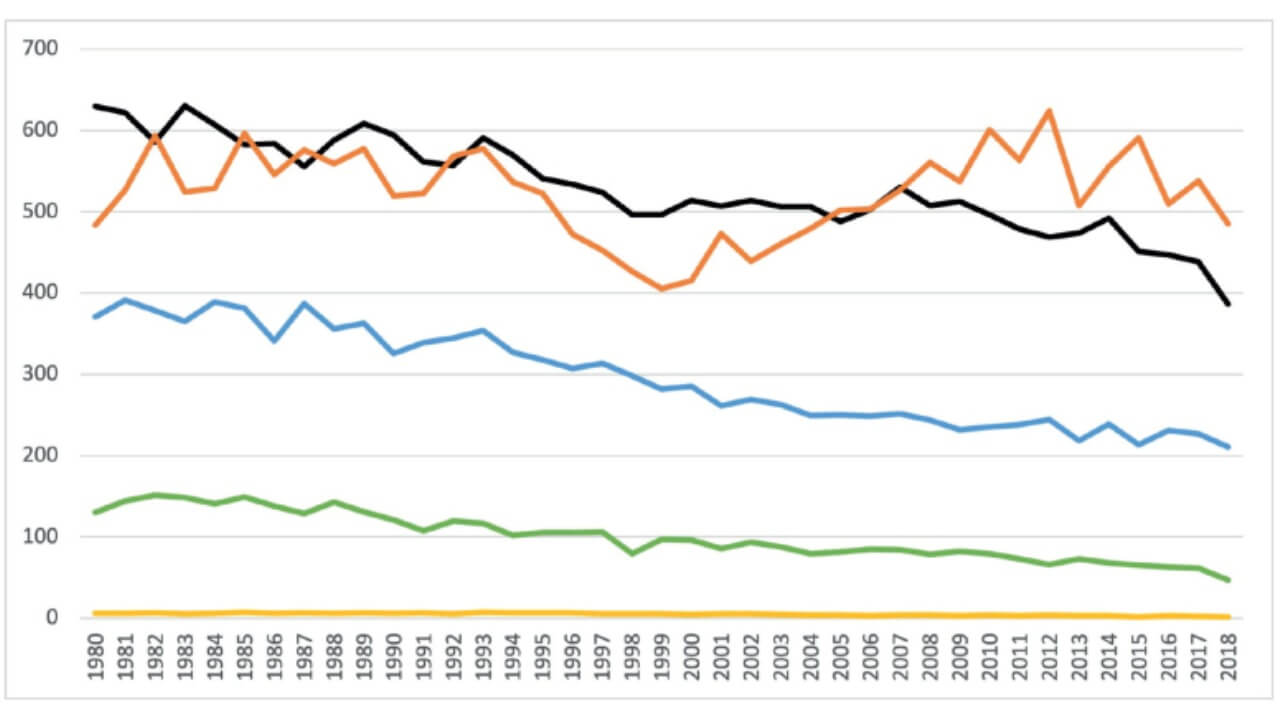
Considering the age at which lung cancer occurs, you can estimate the maximum age at which you can quit smoking. Best of all, if you quit no later than 30 years, the recovery of the lungs will take 10–15 years. Knowing the age at which lung cancer can develop, it is not difficult to understand that in this case, the probability of the disease will significantly decrease. After all, in 40–45 years, the smoker’s lungs will be cleared of the effects of smoking, and the likelihood of lung cancer diagnosis will be the same as that of a person who has never smoked.
But if you were not able to quit before 30 years of age, it’s better to do it later than never. You already know the age when lung cancer risk increases with the greatest probability. This is at the age of 60 years. Therefore, in order not to fall into this age category of smokers waiting for the development of a tumor in the bronchi, it is necessary to quit smoking by the age of forty-five. This will significantly reduce the risk of lung cancer, but will not eliminate it.
When lung cancer develops is an individual question. Different people have different immunity. Genetics, gender, nationality, and a lot of environmental influences affect the risk factors. It is impossible to accurately predict the time when lung cancer cells start to develop. Over the years, the risk increases. Therefore, quitting smoking should happen as early as possible. If you want to prevent lung cancer, the best age to give up cigarettes is between 30 and 45 years.
Often, patients ask if small-cell lung cancer or other types can develop at the age of twenty. It does not usually develop from smoking at this age. In general, lung cancer cases in children are a rarity. It develops only in case of gross genetic defects, expressed primary immunodeficiency, and also against a background of other oncological pathologies in childhood. It can be a metastatic lung cancer. Occasionally, an oncological tumor develops as a result of high-dose radiation therapy for the treatment of another cancer, when healthy cancer cells in the lungs are damaged.
Lung Сancer Сauses In Non-smokers
Many factors can cause lung cancer. After all, the probability of its development is influenced by other risk factors in addition to tobacco smoke. Let’s look at the main reasons why lung cancer also develops in non-smokers.
Radon
Radon poisoning is the second most important cause of lung cancer after smoking. Radon is a colorless and odorless gas. It appears when the radioactive radium decomposes. Radium, in turn, is formed from uranium in the Earth’s crust. Radon is known as the second main cause of lung cancer after smoking. With an increase in the quantity inhaled, the risk of lung cancer rises significantly. Its concentration in the atmosphere depends on the composition of the soil and stones. However, on the streets, the gas dissipates. It is dangerous only when stored in enclosed spaces.
The reason why lung cancer is caused by a high concentration of radon is that it breaks up into solid radioactive elements that have a carcinogenic effect. These are polonium-214, lead-214, and polonium-218. They attach to dust particles and enter the lungs. Settling on the walls of the bronchi, these radioactive elements damage the DNA of local cancer cells, causing mutations and malignant processes.
Now you know why lung cancer develops under the influence of radon. But where does this substance accumulate? Where exactly do people come into contact with radon?
There are several options:
- In their own house. Depending on the soil in particular geographic regions, the level of radon can be significantly increased. An increase of its concentration in the air by every 100 Bq/m3 leads to an increased risk of developing lung cancer by 10%. The radon released by the soil penetrates into cracks in the walls and enters the house, where it accumulates. Most of it is concentrated in the basement.
- At work. Another place of contact with radon can be the workplace. People who work in basements often breathe radon: for example, when pipes are being repaired. This gas can be contained in building materials. Workers of uranium processing plants very often come into contact with radon. The risk factors also include miners in regions with a high level of radon in soil and air.
Although radon is one of the main causes of lung cancer, it does not affect the likelihood of other types of cancer. This is due to the fact that radioactive particles settle in the lungs and do not spread through the blood throughout the body. They emit radiation only at a short distance. Therefore, DNA damage occurs only in those cells that are located nearby. Radon, as the cause of lung cancer, increases the likelihood of this disease in combination with smoking. However, even as an independent risk factor, it is very dangerous.
Asbestos
Another reason that can cause lung cancer is contact with asbestos. It is found in many building materials. After establishing the harmful effects of asbestos in the 1970s, its production in developed countries began to decline substantially. In 2005, it was banned in Europe. Nevertheless, the material is still widely used in some countries, and many European houses were built before 2005. Most often, lung cancer cases are linked to asbestos exposure as an occupational hazard.
This happens when:
- The person works at an enterprise producing building materials from asbestos
- The person is engaged in construction using these materials
- The person lives in a house built with asbestos (it is released into the air when the building is being repaired or demolished)
The cause of lung cancer can only be prolonged inhalation of asbestos fibers. The risk factors include builders of houses, as well as employees of maritime construction enterprises. Their relatives are also at risk, since workers bring asbestos dust home on their clothes. Short-term inhalation does not usually cause lung cancer diagnosis. Only people who have been exposed for at least 15 years are likely to get sick.
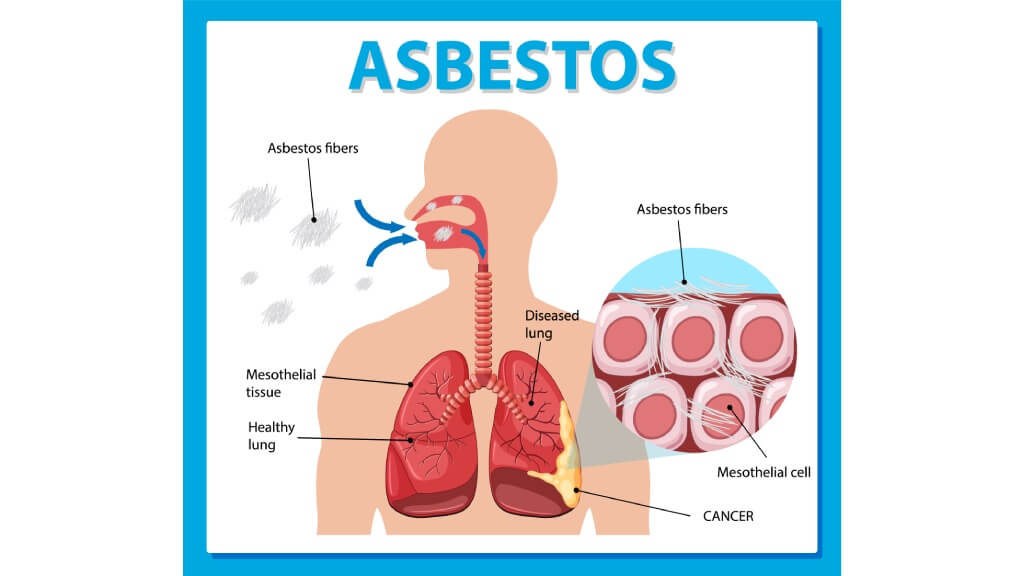
Ecological Factor
Environmental pollution is one of the underestimated causes of lung cancer. According to global statistics of lung cancer, about 5% of cases are linked to industrial emissions and car exhaust. That is why people living in large cities, especially near busy highways, face a higher risk. Doctors emphasize that ecological factors alone can become the reason why lung cancer develops, even without smoking.
Radiation Therapy
Radiation is a powerful mutagen and is one of the important reasons why lung cancer develops. Patients who undergo radiation therapy for breast tumors or other cancers in the chest area may later face complications. Lung cancer statistics confirm that exposure to outdated radiation methods in developing countries significantly increases the risk of malignant transformation in lung tissue. Modern targeted radiotherapy is safer, but radiation remains among the top causes of lung cancer worldwide.
Family History
A family history of lung cancer doubles the probability of the disease. If first-degree relatives had this pathology, a person falls into the genetic risk group. However, statistics of lung cancer suggest that lifestyle also plays a role: passive smoking, asbestos exposure, or high radon levels in the home. Thus, both heredity and environment are combined reasons why lung cancer develops.
Secondary Smoke
Secondhand smoke causes thousands of new lung cancer cases each year. According to global statistics of lung cancer, passive inhalation of tobacco smoke causes about 7,000 deaths annually. In fact, one in four non-smoker cases is directly related to environmental tobacco exposure. That is why oncologists highlight passive smoking as one of the main causes of lung cancer in people who have never smoked themselves.
| Factor / Method | Description | Effect on Lung Cancer | Notes / Statistics |
|---|---|---|---|
| Smoking | Primary risk factor. Includes cigarettes, cigars, and hookah | Significantly increases the risk of developing lung cancer; damages lung cancer cells and the immune system | One in six smokers may develop lung cancer; quitting before 30–45 years greatly reduces risk |
| Radon | Radioactive gas from soil | Causes mutations in the DNA of lung cells | 10% increased lung cancer risk per 100 Bq/m³; dangerous indoors (basements, poorly ventilated spaces) |
| Asbestos | Building material fibers | Leads to small-cell lung cancer and non-small-cell lung cancer types | Requires prolonged exposure (~15 years); family members may also be at risk |
| Air Pollution | Industrial emissions, car exhaust | DNA damage in lung cancer cells raises lung cancer risk | About 5% of lung cancer cases are linked to environmental pollution; city dwellers are at a higher risk |
| Secondary Smoke | Passive inhalation of tobacco smoke | Damages lung cancer cells | Accounts for ~25% of lung cancer cases in non-smokers (~7,000 per year) |
How Not to Get Lung Cancer?
Understanding what causes lung cancer significantly reduces the overall lung cancer risk. Most risk factors are already established and manageable [4]. Therefore, every person has the opportunity to prevent the disease. If you eliminate the major risk factors, the probability of the pathology may decrease up to tenfold.
Here are a few practical tips to help prevent lung cancer:
- Quit smoking. Smoking remains the most significant risk factor for lung cancer. Oncologists estimate that one in six smokers will eventually face a lung cancer diagnosis. This is because cigarette toxins directly damage lung cells, increasing the risk of mutations. The best prevention is never to start smoking. If you already smoke, quitting before the age of 30–45 years greatly lowers the risk of developing lung cancer. This strategy allows the immune system and immune cells in the lungs to recover and fight back against early mutations.
- Limit occupational hazards. Constant inhalation of asbestos, radon, or industrial carcinogens significantly raises the risk of lung cancer. People who work in mines, uranium processing, or construction sites where asbestos is present belong to the highest risk groups. Over time, exposure may lead to small-cell lung cancer or non-small-cell lung cancer. By reducing occupational exposure, you also minimize the chance of metastatic lung cancer and lung metastases in the future.
- Eliminate environmental factors. City residents face a higher lung cancer risk due to polluted air. Car exhaust and industrial emissions are among the leading ecological risk factors.
Preventive measures include:
- Moving away from areas with heavy traffic reduces the chance that lung cancer spreads due to toxic inhalants.
- Living farther from industrial zones, where most lung cancers originate from long-term air pollution.
- Participating in lung cancer screening programs in high-pollution areas to diagnose lung cancer at earlier stages.
The sooner preventive steps are taken, the better. If prevention fails, timely cancer diagnosis and a personalized treatment plan become crucial. Early detection allows doctors to treat lung cancer with modern methods, including targeted drug therapy and advanced radiation therapy performed by experienced radiation oncologists. These approaches are the cornerstone of innovative lung cancer treatment in developed countries such as Germany. There, patients receive individualized care designed to effectively treat cancer and improve long-term outcomes.
Treatment Options for Lung Cancer
In Germany, patients have access to a wide range of modern therapies for lung cancer. Depending on the type, stage, and whether the lung cancer spreads, doctors create a personalized treatment plan. Combining multiple approaches often provides the best outcomes, allowing physicians to treat cancer effectively and manage symptoms. Early lung cancer diagnosis through lung cancer screening greatly increases the success rate of these treatments. Here are some of the most commonly used methods.
Surgery for Lung Cancer
Surgery remains the cornerstone for treating lung cancer when the tumor is localized. By removing the affected tissue, surgeons aim to prevent cancer from spreading to nearby lymph nodes or distant organs. Although not all lung cancer cases are suitable for surgery, it is often the most effective method for long-term survival. Patients with early-stage non-small cell lung cancer frequently benefit the most.
Dendritic Cell Therapy (DC) for Lung Cancer
Dendritic cell therapy is a cutting-edge immunotherapy that leverages the patient’s own immune system and specialized immune cells to target lung cancer cells. Interestingly, the foundational research behind dendritic cells was recognized with a Nobel Prize in Physiology or Medicine, highlighting its significance in oncology [5]. DC therapy can be applied to both metastatic lung cancer and non-small cell lung tumors, often in combination with other forms of cancer treatment. Many German clinics integrate DC therapy into a comprehensive treatment plan to enhance the body’s natural defenses against lung cancer and reduce the risk that lung cancer spreads.
Transarterial Chemoembolization (TACE) for Lung Cancer
TACE is typically used in advanced lung cancer cases or when there are lung metastases. This interventional method delivers chemotherapy directly to the tumor’s blood vessels, followed by embolization to cut off its blood supply. This approach effectively destroys cancer cells while limiting systemic exposure. TACE is often combined with radiation therapy or targeted drug therapy and is managed by skilled radiation oncologists, making it an essential tool in Germany’s comprehensive lung cancer treatment arsenal.
A Medical Journey: Every Step of the Way With Booking Health
Finding the best treatment strategy for your clinical situation is a challenging task. Being already exhausted from multiple treatment sessions, having consulted numerous specialists, and having tried various therapeutic interventions, you may be lost in all the information given by the doctors. In such a situation, it is easy to choose a first-hand option or to follow standardized therapeutic protocols with a long list of adverse effects instead of selecting highly specialized innovative treatment options.
To make an informed choice and get a personalized cancer management plan, which will be tailored to your specific clinical situation, consult medical experts at Booking Health. Being at the forefront of offering the latest medical innovations for already 12 years, Booking Health possesses solid expertise in creating complex management programs in each individual case. As a reputable company, Booking Health offers personalized treatment plans for lung cancer with direct clinic booking and full support at every stage, from organizational processes to assistance during treatment. We provide:
- Assessment and analysis of medical reports
- Development of the medical care program
- Selection of a suitable treatment location
- Preparation of medical documents and forwarding to a suitable clinic
- Preparatory consultations with clinicians for the development of medical care programs
- Expert advice during the hospital stay
- Follow-up care after the patient returns to their native country after completing the medical care program
- Taking care of formalities as part of the preparation for the medical care program
- Coordination and organization of the patient's stay in a foreign country
- Assistance with visas and tickets
- A personal coordinator and interpreter with 24/7 support
- Transparent budgeting with no hidden costs
Health is an invaluable aspect of our lives. Delegating management of something so fragile yet precious should be done only to experts with proven experience and a reputation. Booking Health is a trustworthy partner who assists you in pursuing stronger health and a better quality of life. Contact our medical consultant to learn more about the possibilities of personalized treatment with innovative methods for lung cancer with leading specialists in this field.
Fighting Cancer Together: Treatment Journeys with Booking Health
FAQ: Understanding Causes of Lung Cancer and Risk Factors
Send request for treatmentCauses of lung cancer include smoking, exposure to radon, asbestos, and industrial carcinogens. Genetic predisposition and family history also play a role. Environmental factors like air pollution increase the risk of developing lung tumors. Understanding these factors helps doctors design a personalized treatment plan.
Smoking remains the primary risk factor for lung cancer, responsible for the majority of cases. Tobacco toxins damage lung cancer cells, increase the probability of small-cell lung cancer and non-small cell lung tumors, and reduce immune system defenses. Quitting early significantly lowers the risk of lung cancer.
Yes, lung cancer in non-smokers can occur due to radon exposure, asbestos, air pollution, or secondhand smoke. Family history and genetic predisposition are also significant risk factors. Non-smokers may still develop lung metastases or metastatic lung cancer, though the incidence is lower than in smokers.
Air pollution lung cancer risk arises from inhaling fine particulate matter, diesel exhaust, and industrial emissions. These pollutants cause DNA mutations in lung cancer cells, contributing to non-small cell lung cancer and small-cell lung cancer. City dwellers near traffic-heavy areas face a higher lung cancer risk.
Booking Health helps patients access international clinics for early lung cancer diagnosis. Through check-ups, imaging, and laboratory tests, doctors can detect lung cancer cells before cancer spreads occurs. Early detection enables more effective lung cancer treatment and personalized treatment plans.
Choose treatment abroad and you will for sure get the best results!
Authors:
This article was edited by medical experts, board-certified doctors Dr. Nadezhda Ivanisova, and Dr. Bohdan Mykhalniuk. For the treatment of the conditions referred to in the article, you must consult a doctor; the information in the article is not intended for self-medication!
Our editorial policy, which details our commitment to accuracy and transparency, is available here. Click this link to review our policies.
Sources:
[1] M Malvezzi, C Santucci, P Boffetta et al. European cancer mortality predictions for the year 2023 with focus on lung cancer. Ann Oncol. 2023 Apr;34(4):410-419. doi: 10.1016/j.annonc.2023.01.010. Epub 2023 Mar 6. [DOI] [PubMed]
[2] Zahraa Rahal, Shaza El Nemr, Ansam Sinjab et al. Smoking and Lung Cancer: A Geo-Regional Perspective. Front Oncol. 2017 Sep 1;7:194. doi: 10.3389/fonc.2017.00194. [DOI] [PMC free article]
[3] Morten Borg, Hanne Tønnesen, Rikke Ibsen, Ole Hilberg, Anders Løkke. Lung cancer: a nationwide analysis of sex and age incidence trends from 1980 to 2022. Acta Oncol. 2024 Jun 30;63:34876. doi: 10.2340/1651-226X.2024.34876. [DOI] [PMC free article]
[4] Rohit Shirgaonkar, Prasanta R Mohapatra, Manoj K Panigrahi et al. Evaluation of Risk Factors for Lung Cancer Among Never Smokers and Their Association With Common Driver Mutations. Cureus. 2024 Mar 12;16(3):e56024. doi: 10.7759/cureus.56024. eCollection 2024 Mar. [DOI] [PubMed]
[5] Nobel Prize. The Nobel Prize in Physiology or Medicine 2011–Ralph Steinman.. https://www.nobelprize.org/prizes/medicine/2011/steinman/facts/
Read:
Lung Cancer Treatment in Germany: All New and Most Effective Treatment Options
Article menu:
- Smoking is the cause of lung cancer
- Why Smoking Causes Lung Cancer
- At Which Age Can Lung Cancer Develop?
- Lung Сancer Сauses In Non-smokers
- How Not to Get Lung Cancer?
- Treatment Options for Lung Cancer
- A Medical Journey: Every Step of the Way With Booking Health
- FAQ: Understanding Causes of Lung Cancer and Risk Factors
Don't know where to start?
Contact Booking Health
